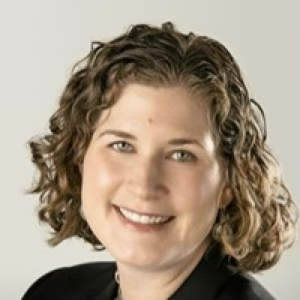Online Engineering Degrees in Georgia
Find schools
When you click on a sponsoring school or program advertised on our site, or fill out a form to request information from a sponsoring school, we may earn a commission. View our advertising disclosure for more details.
“Think about the world around you and what new technologies you’d like to create to improve society.”
Karen M. Feigh, PhD, Professor and Associate Chair for Research, School of Aerospace Engineering at Georgia Tech
Engineers in Georgia (GA) work in a thriving industry—one that acts as a strong support for the state economy as a whole. Engineers play a vital role in the economy in Georgia and throughout the United States. These skilled professionals design, test, and ultimately build structures and products for the modern world. There are a variety of specializations to accommodate every industry and interest, including mechanical, civil, environmental, and electrical, among others. And while engineering is one of the more lucrative career fields in the US, some subfields are growing faster than others.
The Bureau of Labor Statistics (2025) reported that job opportunities for architecture and engineering occupations are expected to grow faster than the average for all occupations between 2023 and 2033. About 195,000 openings are projected each year, on average, in these occupations.
That said, some specializations are expected to be in demand around the country more than others. Here are a few of the fastest-growing engineering subfields listed with their expected growth:
- Industrial engineering – 12 percent increase (40,900 new jobs)
- Mechanical engineering – 11 percent increase (32,100 new jobs)
- Chemical engineering – 10 percent increase (2,100 new jobs)
- Electrical and electronics engineering – 9 percent increase (26,200 new jobs)
- Agricultural engineering – 8 percent increase (100 new jobs)
- Computer hardware engineering – 7 percent increase (6,100 new jobs)
- Environmental engineering – 7 percent increase (2,900 new jobs)
- Materials engineering – 7 percent increase (1,800 new jobs)
- Bioengineers and Biomedical engineering – 7 percent increase (1,500 new jobs)
- Civil Engineering – 6 percent increase (22,100 new jobs)
In Georgia (GA) specifically, the expected percentages were even higher. According to Projections Central (2025), the top-growing subfields of engineering between 2022 and 2032 included:
- Rail Yard Engineers, Dinkey Operators, and Hostlers – 34.8 percent increase (80 new jobs)
- Stationary Engineers and Boiler Operators – 32.4 percent increase (110 new jobs)
- Chemical Engineers – 25 percent increase (60 new jobs)
- Industrial Engineers – 22.3 percent increase (1,620 new jobs)
- Mechanical Engineers – 19.9 percent increase (930 new jobs)
- Ship Engineers – 17.6 percent increase (30 new jobs)
- Civil Engineers – 12.1 percent increase (1,060 new jobs)
- Biomedical Engineers – 11.8 percent increase (20 new jobs)
- Materials Engineers – 11.5 percent increase (70 new jobs)
- Health and Safety Engineers, Except Mining Safety Engineers and Inspectors – 11.2 percent increase (100 new jobs)
Along with the promise of growing job openings in the future, engineers in the state also enjoy the support of engineering organizations and societies. Here is a handful of groups that offer education, advocacy, scholarly research, networking opportunities, and many other benefits to engineers in the state:
Ultimately, these reasons compel many people in Georgia to pursue a career in engineering. Before beginning work as an engineer, however, it’s generally necessary to complete an educational program. And while many aspiring engineers enroll in traditional, on-campus programs, others are now obtaining certificates, diplomas, and degrees online.
Of course, online engineering programs are a relatively new development and some prospective students may need more time to enroll. In reality, however, many high-quality, accredited online engineering programs in Georgia may provide an excellent option for anyone interested in the freedom and flexibility of distance education. These educational pathways may be ideal, especially for working professionals who want to keep their employment; those living in more rural regions of the state; or those with familial or other types of commitments preventing them from attending an on-campus degree program.
This guide offers an overview of online engineering schools based in Georgia, including expected coursework in different degree programs, and accreditation information.
| Featured Online Engineering Programs | ||
|---|---|---|
| ECPI University | Electronics Engineering Technology (Bachelor's) | Visit Site |
| ECPI University | Mechanical Engineering Technology (Associate's) | Visit Site |
| ECPI University | Mechanical Engineering Technology (Bachelor's) | Visit Site |
| American Public University | Engineering: Electrical Engineering (BEng) | Visit Site |
| Southern New Hampshire University | Online MBA - Engineering Management | Visit Site |
| Norfolk State University | MSEE - Biomedical Engineering | Visit Site |
| Norfolk State University | MSEE - Microelectronics and Photonics | Visit Site |
sponsored
×
When you click on a sponsoring school or program advertised on our site, or fill out a form to request information from a sponsoring school, we may earn a commission. View our advertising disclosure for more details. |
||



